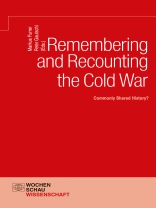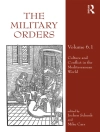Perceptions and images of the Cold War as they appear in textbooks, in the classroom but also in public and in the scientific discourse are topic of this volume ‘Remembering and Recounting the Cold War – Commonly Shared History?’.
These perceptions and images are particularly interesting because they are part of the communicative memory and are thus in the process of undergoing change. It is also the task of history didactics, here understood as a science concerned with investigating, theorizing on and
staging the way of how people and societies deal with history and memories, to describe, to analyze and to interpret such moldings of teaching cultures, memory cultures and, of course, individual and collective views of this era.
Cuprins
Authors Foreword
Introduction
Markus Furrer, Peter Gautschi: Memory Cultures and History Education. Introduction
Pictures
Anu Raudsepp: On the Enemy Image in the Cold War Period History Textbooks Used in Estonia
Daniel V. Moser-Léchot: China after 1949 in Swiss History Textbooks from 1950 to 2005
Political Culture
Tamas Kanyo-Fischer: Erud? The Political Culture of the Cold War – Remarks on Hungary
Alexander S. Khodnev: The Culture of Memory of the Cold War in Modern Russia, 1991-2015
Ismail H. Demircioglu: The Culture of Remembrance of the Cold War in Turkey
Recounting the Cold War
Markus Furrer: A view of the Cold War in the Swiss Historical Narrative
Ueli Bischof: The Cold War and Switzerland. Views of History of Central Switzerland Teachers of the Secondary Level I and II
Ismail H. Demircioglu, Ebru Demircioglu: The Cold War in Turkish History Textbooks
Ismail H. Demircioglu, Ebru Demircioglu: What Do Turkish History Teachers Think About The Cold War?
Debating the Cold War
Joanna Wojdon: Colonel Ryszard Kuklinski (Jack Strong). A Case Study of the Polish Debates on the Cold War
Lesson dossier on a history double lesson from Switzerland
Documented and compiled by Peter Gautschi, Hans Utz, Nora Zimmermann: Switzerland’s Attitude in the Cold War
Authors
Despre autor
Prof. Dr. Markus Furrer and Prof. Dr. Peter Gautschi, University of Teacher Education Lucerne, Center of History Education and Memory Cultures Lucerne, Switzerland












